Understanding India’s Economic Potential Through Dimon’s Insights 🌏
During the recent JPMorgan India Investor Summit held in Mumbai, Jamie Dimon, the Chairman and CEO of JPMorgan Chase, articulated a perspective on India’s developmental trajectory and the intricate global landscape marked by geopolitical uncertainties. His insights encompassed a variety of topics, from JPMorgan’s advancing operations in India to the complex dynamics of U.S.-China relations and the global race in semiconductor production. Dimon’s detailed commentary offered a lens to view both the present state of the world economy and the driving forces poised to influence future changes.
India as a Thriving Market 🚀
Dimon initiated the conversation by highlighting JPMorgan’s substantial growth in India, noting a remarkable increase in its workforce from 6,000 to 60,000 in recent years. He expressed, “We’ve been growing alongside the country, which has been experiencing considerable economic success.” This statement reflected India’s strong economic momentum. Furthermore, he mentioned that JPMorgan’s operations encompass various sectors such as data analytics, engineering, and asset management. His enthusiasm for India’s prospects was evident as he pointed out that the firm manages 850 multinational entities in the country, covering 150 companies through its banking and research services.
Dimon conveyed his optimism regarding Indian markets by asserting, “I’m quite hopeful about India’s future.” This sentiment aligns with a broader narrative that positions India as an increasingly significant player in the global economic arena.
U.S.-India Semiconductor Agreement: A Transformational Move 💻
A pivotal topic during the summit was the recent partnership between the U.S. and India aimed at establishing a semiconductor manufacturing facility in India. Dimon expressed profound enthusiasm about the potential ramifications of this agreement, referring to it as “an essential advancement for both national security and economic growth.” He praised India’s capacity to attract cutting-edge technologies and articulated that this collaboration would considerably enhance the nation’s industrial prowess. Additionally, he indicated a desire for increased economic cooperation between the two nations, stating, “I would love to see far more of this.”
Furthermore, Dimon emphasized the importance of India’s non-aligned stance in the geopolitical arena. He clarified that India should maintain its economic interests without being pressured into specific political alignments. According to him, this arrangement epitomizes the essence of economic collaboration devoid of political tension.
Examining Global Geopolitical Challenges 🌍
Dimon took a deep dive into the geopolitical strains influencing today’s economic climate. He turned to U.S.-China relations, observing a marked shift in supply chains being reevaluated, especially due to national security issues. He remarked, “Every country is focusing on national security, and the U.S. is reducing its dependency on China for critical products like semiconductors.” This transition is not exclusive to the U.S.; countries such as India, Vietnam, and Malaysia are also positioning themselves strategically within the global supply framework through the “China Plus One” approach.
He characterized the existing U.S.-China dynamic as resembling a “Cold War-like situation,” intensified by China’s affiliations with nations like Russia and Iran. “China is currently perceived as adversarial to the U.S. due to its relationships with Russia and Iran,” he stated, underlining the increased tensions between these superpowers. Despite this, Dimon does not anticipate a complete severance of ties between the U.S. and China, although he acknowledged the potential for escalating tensions.
Concerns about Ongoing Conflicts ⚔️
In addressing the lingering conflict between Russia and Ukraine, Dimon articulated his apprehensions about the ramifications of this war alongside regional instabilities in the Middle East. He noted that “American naval vessels face regular attacks in the Red Sea,” indicating the volatility of global conflict zones. He warned about the risks of inadvertent incidents, particularly within the energy sector, which could have disastrous repercussions globally. “The geopolitical landscape is deteriorating,” he cautioned, emphasizing that the instability in regions like Ukraine and the Middle East could severely impact global energy resources and economic equilibrium.
Cautious View on Industrial Policies ⚖️
Dimon also offered his perspective on the increasing trend of industrial policies designed to secure national interests. He expressed concerns about ramping up such policies indiscriminately, contending that “industrial policy should not be weaponized for political gain.” Rather, these policies ought to focus on specific national security priorities, particularly concerning semiconductors and rare earth elements. He commended both the U.S. and India for their efforts towards creating secure and diverse supply chains but cautioned that inappropriate applications of industrial policies could backfire.
For India, he recommended that the nation continues striving to be an appealing destination for foreign direct investment (FDI). He lauded initiatives such as the PM Gati Shakti plan and the implementation of Goods and Services Tax (GST) reforms, suggesting that “India is progressing positively. However, refining regulations and simplifying processes for foreign investors can greatly enhance growth.” He highlighted the necessity for advancing national infrastructure and promoting innovation in technology and energy sectors.
Reevaluating Monetary Policy and Future Economic Perspectives 💡
Focusing on the U.S. monetary landscape, Dimon shared a cautious sentiment. He recognized the Federal Reserve’s recent decision to lower interest rates by 50 basis points but voiced some skepticism regarding its significance. He commented, “I think this reduction received more emphasis than it merited,” emphasizing that the economy remains in a transitional phase, with inflation showing gradual declines. While he noted that markets may be optimistic about the future, he maintained a reserved stance, stating, “Put me on the cautious side of that one,” expressing that despite a favorable long-term outlook, immediate geopolitical and economic uncertainties necessitate a vigilant approach.
Hot Take 🔥
Jamie Dimon’s insights at the summit showcase the intertwined narrative of India’s burgeoning potential and the complexities of geopolitics. India stands on the cusp of becoming a pivotal player on the global stage, driven by strategic partnerships and innovations while navigating the challenging waters of international relations. Emphasizing economic cooperation over political alignment illustrates a pragmatic approach that fosters mutual growth. As this year unfolds, the balance between growth opportunities and inherent risks becomes increasingly crucial for decision-makers within the region and beyond.
Sources:

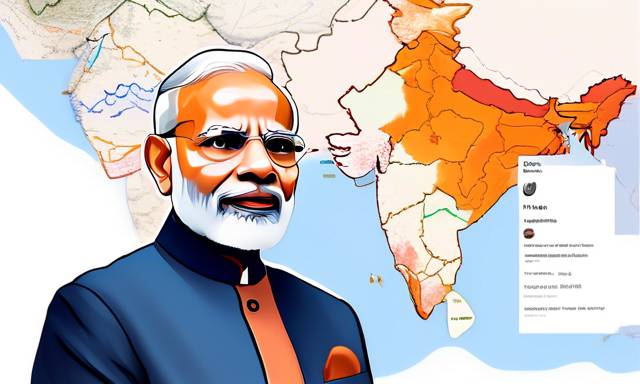
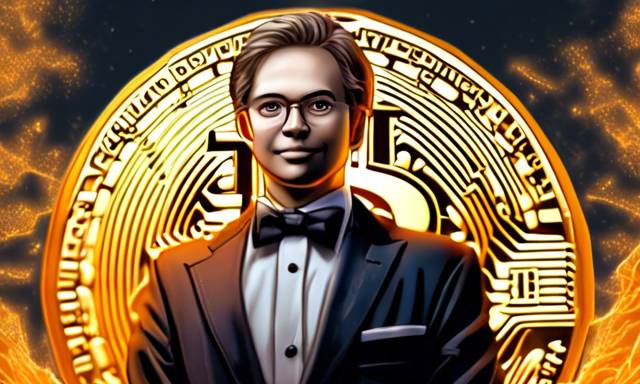

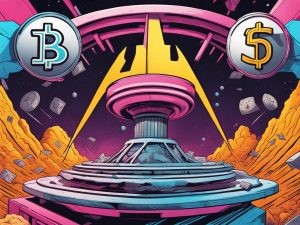
 By
By
 By
By
 By
By
 By
By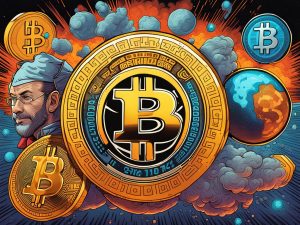
 By
By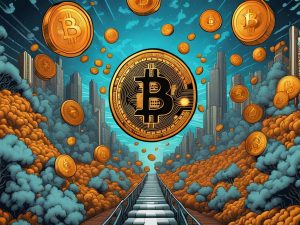
 By
By